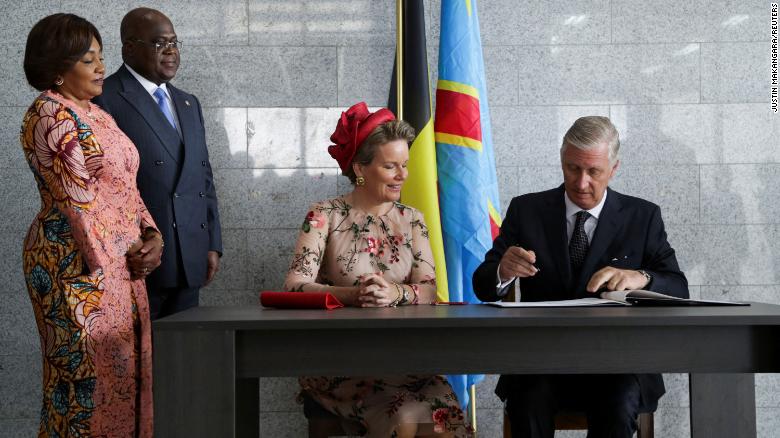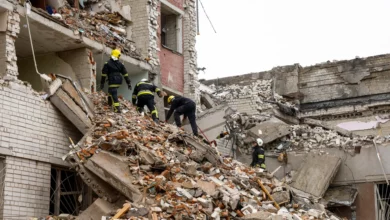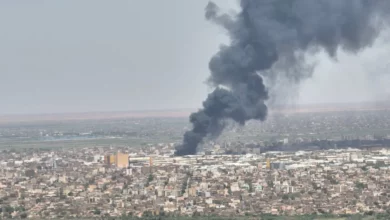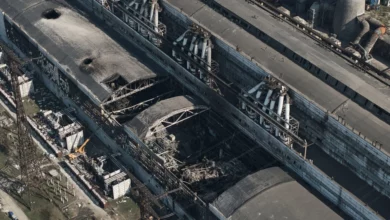
(CNN) – Belgium’s King Philippe reaffirmed his deepest regrets on Wednesday for the exploitation, racism and acts of violence during his country’s colonization of the Democratic Republic of Congo, but again stopped short of formally apologizing.
Philippe became the first Belgian official in 2020 to express regret for colonization, and some Congolese hoped he would issue a formal apology during his first visit to Congo since taking the throne in 2013.
“Even though many Belgians invested themselves sincerely, loving Congo and its people deeply, the colonial regime itself was based on exploitation and domination,” he told a joint session of parliament in the capital Kinshasa.
“This regime was one of unequal relations, unjustifiable in itself, marked by paternalism, discrimination and racism,” he said.
“It led to violent acts and humiliations. On the occasion of my first trip to Congo, right here, in front of the Congolese people and those who still suffer today, I wish to reaffirm my deepest regrets for those wounds of the past.”
Congo President Felix Tshisekedi and many politicians have enthusiastically welcomed Philippe’s visit. Large numbers of ruling party supporters waved Belgian flags, and a banner hanging from parliament read: “A common history.”
But many Congolese were likely to be disappointed by the absence of an apology.
By some estimates, killings, famine and disease killed up to 10 million Congolese during just the first 23 years of Belgium’s rule from 1885 to 1960, when King Leopold II ruled the Congo Free State as a personal fiefdom.
Villages that missed rubber collection quotas were notoriously made to provide severed hands instead.
“They left us isolated, abandoned. They pillaged all our resources, and today you invite the Belgian king again?” said Junior Bombi, a salesman in Kinshasa’s central market.
Antoine Roger Lokongo, a professor at the University of Joseph Kasa-Vubu in southwestern Congo, said before the speech that he would be waiting to see if Philippe formally apologized.
“The simple regret that you have expressed is not sufficient,” Lokongo said.
Traditional mask
Philippe arrived on Tuesday with his wife, Queen Mathilde, and Prime Minister Alexander De Croo for a week-long visit.
Tshisekedi said during a brief news conference earlier on Wednesday with De Croo that he was focused on boosting cooperation with Belgium to attract investment and improve health care and education in Congo.
Relations had soured under Tshisekedi’s predecessor, Joseph Kabila, whom Brussels criticized for suppressing dissent and extending his time in power beyond legal limits.
“We have not dwelled on the past, which is the past and which is not to be reconsidered, but we need to look to the future,” Tshisekedi said.
Some Kinshasa residents said they hoped the visit would bring investment and a renewed focus on the conflict in the east of the country.
“My feeling is that we should start having good Congolese-Belgium relations again, like before,” said Antoine Mubidiki. “Despite what the Belgians did to us during colonization, we are ready to forgive.”
Philippe also offered a traditional mask of the Suku people to Congo’s national museum as an “indefinite loan.” The mask has been held for decades by Belgium’s Royal Museum for Central Africa.
“I am here to return to you this exceptional work in order to allow Congolese to discover and admire it,” he said.
Belgium has traditionally said little about colonialism, and the subject has not been extensively taught in Belgian schools.
But there have been the beginnings of a historical reckoning in recent years. During anti-racism protests sparked in 2020 by the police killing in the United States of George Floyd, demonstrators targeted statues of King Leopold II.
Belgium’s parliament established a commission soon after to examine the historical record. It will issue its final report this year.
Belgium will also hand over a tooth, suspected to be the only remains of Congo’s first prime minister Patrice Lumumba, to his family this month. The Belgian government took partial responsibility in 2002 for Lumumba’s death in 1961.




